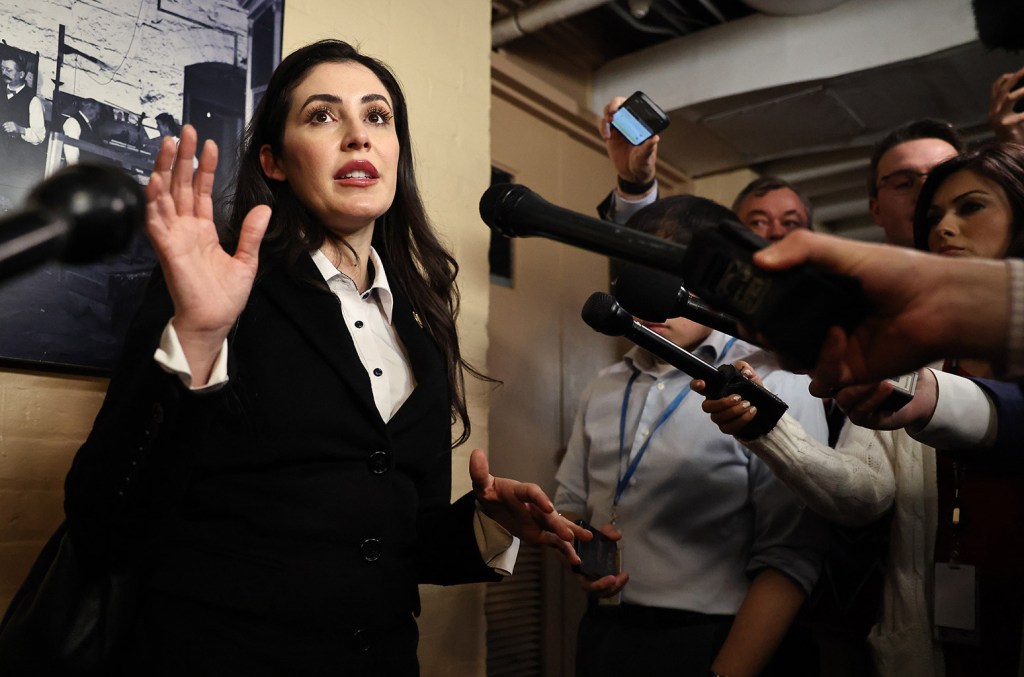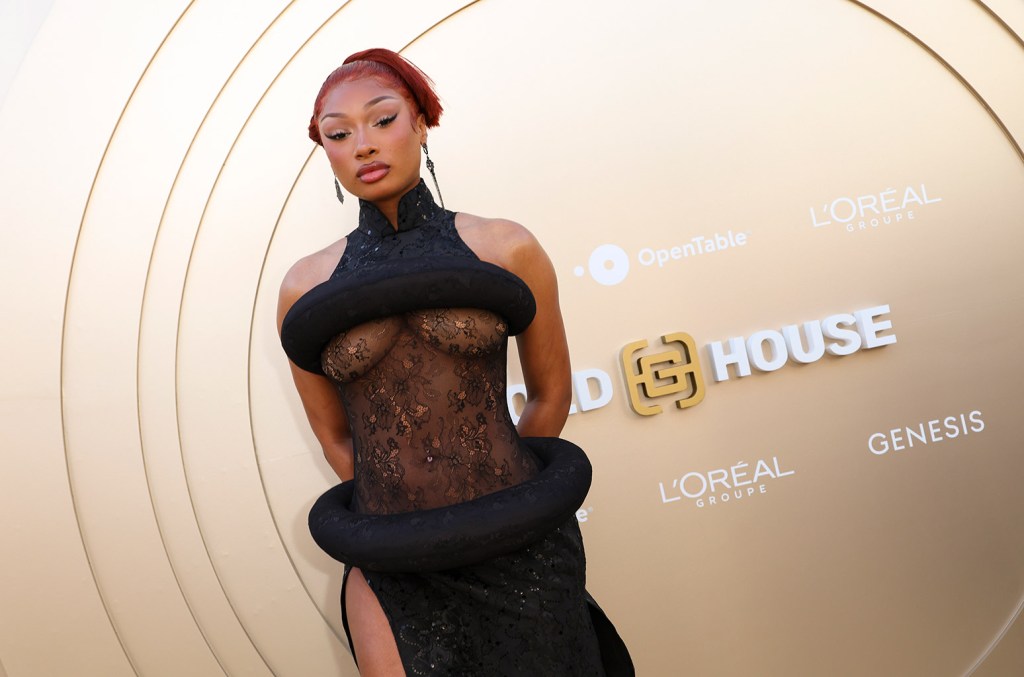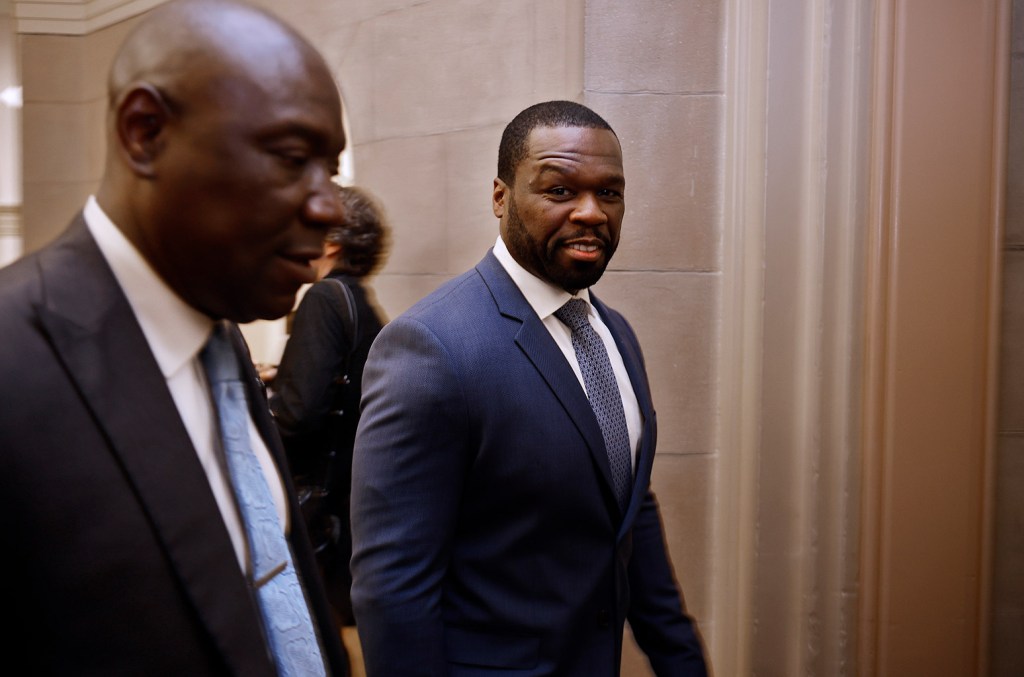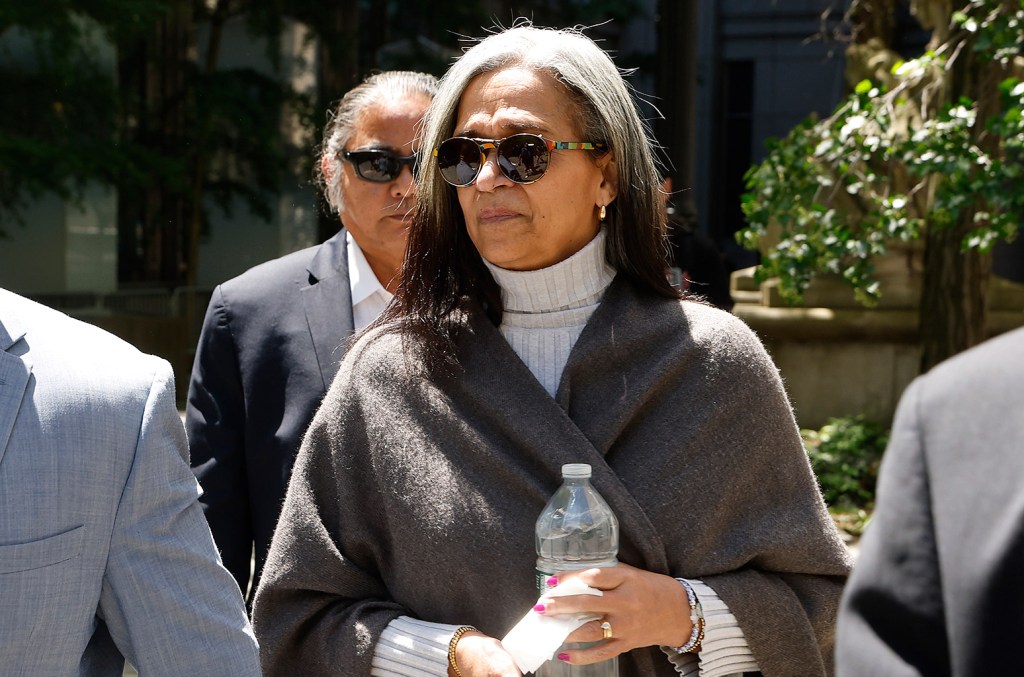Legal
Page: 17
A London judge has released Chris Brown on bail in the amount of $6.7 million on Wednesday (May 21), according to Reuters. The “Forever” singer also has to surrender his passport when not traveling for his upcoming Breezy Bowl XX Tour in North American and Europe, which is scheduled to kick off June 8. According […]
50 Cent is back at it. The Queens rapper and filmmaker continues to troll Diddy as the Harlem mogul’s sex trafficking trial heads into its second week. This time, he posted an AI-generated picture of himself on Instagram wearing a white “Free Diddy” shirt in front of a courthouse and followed that up with a […]
Several new witnesses took the stand Tuesday at Sean “Diddy” Combs’ sex-trafficking trial, including a male escort named “The Punisher” and Cassie Ventura’s mother, who testified that she was “scared for my daughter’s safety.”
Regina Ventura told jurors that she documented the physical abuse Cassie suffered from Combs, who prosecutors claim coerced the younger Ventura and others into participating in drug-fueled sex shows known as “freak-offs.”
The elder Ventura later testified that she once wired $20,000 to Combs’ company in 2011 after Cassie told her that the rapper was threatening to release a sex tape of her, according to the New York Post and other media outlets — allegedly because he was enraged at her romantic relationship with Kid Cudi: “I was physically sick,” she testified, before adding, “I was scared for my daughter’s safety.”
She later said the money, which she obtained by taking out a home-equity loan, was returned days later and she had no contact with Combs about it.
Later in the morning, jurors heard testimony from Sharay Hayes, a male exotic dancer who goes by the nickname “The Punisher.” He testified that he attended as many as 12 freak-offs, and that Combs often closely directed how he and Ventura were to have sex.
Combs was indicted in September, charged with running a sprawling criminal operation aimed at facilitating the freak-offs — elaborate events in which Combs and others allegedly pressured Ventura and other victims into having sex with escorts while he watched and masturbated. Prosecutors also say the star and his associates used violence, money and blackmail to keep victims silent and under his control.
Once one of the music industry’s most powerful men, Combs is accused of racketeering conspiracy (a so-called RICO charge), sex trafficking and violating a federal prostitution statute. If convicted on all of the charges, he faces a potential life prison sentence.
Defense attorneys maintain that Ventura and other women consensually took part in the sex parties. They’ve admitted that Combs had committed domestic violence during his and Ventura’s “toxic” relationship and had unusual sexual preferences, but that he had never coerced her into participating in his “swinger” lifestyle.
Tuesday also saw testimony from David James, Combs’ former personal assistant, continuing his testimony from Monday; and Gerard Gannon, a federal law enforcement agent who led the headline-grabbing raid of Combs’ house in Miami last spring that turned up guns and huge amounts of baby oil.
Cudi himself is expected to take the witness stand later this week, where he will potentially be asked about an infamous incident in which Combs allegedly set his car on fire as payback for his brief relationship with Ventura.
THE BIG STORY: Jennifer Lopez is facing copyright lawsuits over paparazzi pictures — of herself.
In complaints filed this week in federal court, photographer Edwin Blanco and photo agency BackGrid USA accused the star of violating their rights by reposting images of herself outside a Golden Globes pre-party in January.
A star getting sued for posting a picture of herself might sound unusual, but it’s exceedingly common. Over the last few years, Dua Lipa, Miley Cyrus, Justin Bieber, Ariana Grande, Emily Ratajkowski, LeBron James, Katy Perry and others have all faced similar cases.
Unfortunately for J. Lo, the law is pretty clear: Photographers own the copyrights to the images that they take, and using them without a license constitutes infringement. Simply appearing in an image does not give a celebrity co-ownership of it, nor does it give them the right to repost it for free.
As we’ve written here previously, that probably seems unfair to stars hounded by paparazzi. When Khloe Kardashian was hit with such a case in 2018, she said as much: “They can legally stalk me and harass me and then on top of it all I can’t even use the pictures of myself they take LOL what the f— is this,” the reality star wrote on social media.
Trending on Billboard
Those arguments haven’t gotten much play in court. When Ratajkowski was sued, she briefly argued she had legally re-used an “exploitative image” to criticize the “harassing and relentless behavior of paparazzi.” But the vast majority of these cases quickly end in small settlements — and the Lopez case is unlikely to be any different.
For all the details on the case against J. Lo, go read our story on the new lawsuits from Billboard‘s Rachel Scharf. And for more details on how these cases work, go read my in-depth explainer.
You’re reading The Legal Beat, a weekly newsletter about music law from Billboard Pro, offering you a one-stop cheat sheet of big new cases, important rulings and all the fun stuff in between.
Other top stories this week…
DIDDY TRIAL CONTINUES – The sex-trafficking trial of Sean “Diddy” Combs continued into its second week, first with more bombshell testimony from star prosecution witness Cassie Ventura — about Kid Cudi, a $20 million settlement and more vivid allegations of abuse. The singer was then cross-examined by defense attorneys, who showed jurors huge numbers of her emails and text messages — some loving, others sexually graphic — in an effort to prove she was a willing participant in the so-called “freak-off” sex shows at the center of the case. Friday (May 16) and Monday (May 19) were dominated by testimony from Danity Kane singer Dawn Richard, who said she saw Diddy repeatedly attack Ventura, including once with a frying pan and another time at a restaurant with Usher and other celebs present. The trial is expected to run until early July.
POSTY CUSTODY FIGHT – Post Malone legally opposed efforts by his ex, Hee Sung “Jamie” Park, to move their two-year-old daughter to California, arguing that the child has lived in Utah most of her life and should remain a resident there. The filing came in response to a custody petition filed by Park last month, seeking sole physical custody of the girl following their split in November.
COVID COLLUSION? The Justice Department is conducting a criminal antitrust investigation into whether Live Nation and AEG illegally colluded in their concert refund policies at the beginning of the COVID-19 pandemic. The probe was first reported by Bloomberg and later confirmed by Live Nation, which strongly denied any wrongdoing: “It is not illegal for artist agents, promoters and ticketing companies to work together to solve the unprecedented challenges of a global pandemic,” said Dan Wall, the company’s regulatory chief.
“INFLAMMATORY ACCUSATIONS” – Days after sending subpoenas to Taylor Swift and her lawyers, Justin Baldoni’s attorneys made a shocking claim that Blake Lively asked Swift to delete text messages and used “extortionate threats” to try to get a statement of support from the pop superstar. Those allegations, credited to an anonymous source and denied by Lively’s lawyers as “categorically false,” were later thrown out of court by a federal judge, who called them a “misuse of the court’s docket” by Baldoni’s attorneys: “The sole purpose of the letter is to promote public scandal by advancing inflammatory accusations,” the judge wrote.
DRAKE CASE IS “DANGEROUS”? A group of legal scholars warned a federal judge that Drake’s defamation lawsuit against Universal Music Group over Kendrick Lamar’s “Not Like Us” was “dangerous” because it would have a “chilling effect” on hip-hop and encourage prosecutors to use rap lyrics as evidence in criminal cases. The professors, hailing from UC Irvine, said that diss tracks are a form of creative expression, not a “series of news reports” — and that Drake’s case threatens to “deny rap the status of art and instead to flatten lyrics into literal confessions.”
TERMINATION LITIGATION – Salt-N-Pepa sued Universal Music Group to win back control of their masters, claiming in a new lawsuit that the music giant has stonewalled their use of copyright’s so-called termination rights. Rather than accepting the move, the case claims UMG has instead “punished” the legendary hip-hop duo by removing some of its music from streaming and holding its music “hostage.”
DURK LYRICS BATTLE – Federal prosecutors fired back at Lil Durk’s “false narrative” that they’re unfairly using his lyrics against him, arguing that he was indicted because of a “brazen murder plot” and not because of his music. Weeks after the feds removed all musical references from the case, they argued they still had more than enough to charge him for murder-for-hire: “Defendant was charged for his murderous conduct, not his lyrics.”
SMOKEY POLICE REPORT – Attorneys for the housekeepers suing Smokey Robinson for sexual assault confirmed that they had filed a police report against the 85-year-old Motown legend, leading the Los Angeles County Sheriff’s Department to open a criminal investigation. The singer’s attorneys said such a probe was automatically required after the filing of a report, and said they “welcome that investigation”: “We feel confident that a determination will be made that Mr. Robinson did nothing wrong.”
LIL NAS X CASE TOSSED – A federal appeals court dismissed an unusual lawsuit accusing Lil Nas X of copying Instagram posts by a freelance artist and model named Rodney Woodland, who claimed the rapper stole his distinctive semi-nude poses and used them in his own IG posts. The Ninth Circuit ruled that the disputed images “share few similarities” and Lil Nas likely never saw them anyway.
SHEERAN AT SCOTUS – Ed Sheeran urged the U.S. Supreme Court to finally end one of the long-running lawsuits claiming his “Thinking Out Loud” infringed Marvin Gaye‘s “Let’s Get It On.” The star’s lawyers said the case, filed by a company that owns a partial stake in Gaye’s 1973 song, was rightfully dismissed by a lower appeals court in November, which ruled that the two tracks share only basic “musical building blocks.”
TUPAC/BIGGIE COPYRIGHT CASE – A pair of photographers who snapped photos of the late legendary rappers Tupac Shakur and The Notorious B.I.G. teamed up to sue Univision for copyright infringement, accusing the broadcaster of using the images without permission in a web article about “unsolved” murders.
BANKRUPT STREAMER – Free music streaming service AccuRadio filed for bankruptcy, citing $10 million in debts to SoundExchange for artist royalties. The company, which describes itself as “the only online music streaming service curated by human beings, not algorithms,” said it had been unable to reach a settlement to resolve a lawsuit filed by SoundExchange over those debts.
Kid Cudi is expected to testify as a witness in Diddy’s sex trafficking trial.
According to CNN, prosecutor Maurene Comey announced on Tuesday (May 20) that Cudi (born Scott Mescudi) will take the stand later this week.
Last week, during Cassie’s time on the stand, she testified that Diddy became irate and threatened to blow up Cudi’s car after learning she was dating the Cleveland-bred rapper in 2011.
“Too much danger, too much uncertainty of what could happen if we continued to see each other,” she reportedly said of why she ended things romantically with Cudi after a brief dating stint.
Explore
Explore
See latest videos, charts and news
See latest videos, charts and news
“[Diddy] said he wanted Scott’s friends to see Scott’s car blown up,” Cassie added. “We met, [Diddy], [Kid Cudi] and me. [Kid Cudi] said, ‘What about my vehicle?’ And [Diddy] said, ‘What vehicle?’ And that was the end of the meeting.”
Trending on Billboard
Cassie’s bombshell 2023sexualabuse lawsuit against Combs accused Diddy of blowing up Kid Cudi’s car in his driveway after repeatedly threatening the “Day ‘n’ Nite” rapper. Reps for Cudi confirmed the car explosion to The New York Times.
Cassie’s mother, Regina Ventura, took the stand and claimed that Diddy demanded he be paid $20,000 for the money he spent on Cassie as he became enraged to find out she was dating Cudi.
According to Complex, Ventura took out a home equity loan to get Diddy the cash, but returned the money days later without an explanation.
An email sent from Cassie to her mom was reportedly shown in court, which accused Diddy of threatening to leak a pair of sex tapes featuring Cassie. “He is going to release two explicit tapes of me,” the 2011 email reportedly reads. “One on Christmas Day… Another one soon after that. He has also said that he will be having someone hurt me and Scott Mescudi physically.”
Kid Cudi’s testimony will follow George Kaplan, who was an employee of Diddy’s who quit after allegedly witnessing physical abuse. Cudi’s time on the stand could come on Wednesday (May 21) or Thursday (May 22).
Diddy is facing charges of sex trafficking and racketeering, and the Bad Boy mogul could be sentenced to life in prison if found guilty on all counts. The trial is expected to last into July.
The maker of Fortnite has defeated a $32.5 million patent lawsuit over animated in-game concerts put on by Travis Scott and Ariana Grande, with a federal jury deciding that it did not steal another company’s technology for the virtual events.
The verdict came down on Monday (May 19) after a weeklong trial against Fortnite maker Epic Games. Epic was accused of infringing a patent invented by Canadian virtual reality company Utherverse Digital when it staged the virtual Scott and Grande concerts for tens of millions of Fortnite users in 2020 and 2021.
Utherverse was seeking $32.5 million in damages for the alleged infringement. But the jury in Seattle federal court rejected the claims, siding with Epic to rule that neither the Scott nor the Grande concert stole Utherverse’s technology.
Trending on Billboard
Lawyers for Utherverse and Epic did not immediately respond to Billboard‘s requests for comment on the verdict Tuesday (May 20).
The litigation has been ongoing since 2021. That year, Utherverse claimed that the Fortnite concerts relied on a patent it was issued in 2017, which covers a type of technology for playing back a recorded event in a virtual world.
Epic denied any infringement, saying the technology behind its virtual concerts used completely different processes than Utherverse’s patent. Epic’s attorney, Daralyn Durie of the law firm Morrison Foerster, said during the trial’s closing arguments that Utherverse was “trying to fit a square peg in a round hole.”
Jurors heard testimony during the trial from Brian Shuster and Aaron Burch, two Utherverse employees who co-invented the patent at issue. Multiple Epic executives also testified, including controller Brian Boyle and former head of marketing Matthew Weissinger.
Scott’s “Astronomical” concert series in April 2020 made history as Fornite’s largest-yet in-game gathering, drawing nearly 28 million unique players from across the world across five airings of a pre-taped performance by the rapper’s avatar.
In August 2021, Fortnite followed up its success with the Scott concerts with Grande’s “Rift Tour,” which similarly featured an animated version of the pop star performing hits like “7 rings” and “Positions” across five viewings.
A number of other artists have since performed their own virtual concerts within the massively popular Fortnite gaming universe, including Eminem, The Weeknd and Billie Eilish.

Rep. Anna Paulina Luna of Florida’s 13th district is calling for Tory Lanez’s freedom. The Republican urged California’s Gov. Gavin Newsom to review the Toronto singer’s 2020 shooting case and issue Lanez (born Daystar Peterson) a pardon in a message posted to X on Monday (May 19).
“I am calling on Gov. Newsom @CAgovernor to review Tory Lanez’s case and issue a pardon,” she wrote. “His 10-year sentence was based on flawed evidence, political pressure, and prosecutorial bias. Justice must be blind— not driven by headlines. Free Tory Lanez.”
Lanez is currently serving a 10-year sentence after being convicted on three felony counts tied to shooting Megan Thee Stallion in the feet following a July 2020 party in Hidden Hills, Calif.
Trending on Billboard
Rep. Luna has also claimed via X on Tuesday (May 20) that new “compelling evidence” will be presented in the next 36 hours, which she believes will exonerate Lanez. “We have compelling evidence proving Tory Lanez’s innocence, and it will be released within the next 36 hours,” she wrote. “Those who rushed to call for his incarceration, and worse yet pushed false evidence, should prepare to be held accountable.”
Billboard has reached out to Megan Thee Stallion’s rep for comment on Luna’s messages on X.
Reps for Lanez from the Los Angeles nonprofit social justice organization Unite the People presented alleged new findings in Tory’s case during a press conference last week. Attorney Walter Roberts claimed that Kelsey Harris’ bodyguard, Bradley James, filed an affidavit claiming he overheard Harris admit to firing the weapon and not Lanez.
Megan Thee Stallion’s attorney, Alex Spiro, released a statement refuting Roberts’ claims. “Tory Lanez was tried and convicted by a jury of his peers and his case was properly adjudicated through the court system,” he said. “This is not a political matter — this is a case of a violent assault that was resolved in the court of law.”
The “Savage” rapper herself also slammed the claims of new evidence on Monday. “FACTS ARE FACTS, he did it , it was PROVEN IN COURT f–k the hate campaign on the internet TORY YOU SHOT ME !!” she wrote in a social media post. “Ain’t no new f–king evidence yall been saying the same s–t for years.”
Lanez was stabbed in prison on May 12 inside California Correctional Institution in Tehachapi. He was hospitalized for his injuries, and a statement posted hours later to his social media said he was stabbed 14 times, but was in “good spirits” while recovering. It also noted that his lungs had collapsed, but was breathing on his own at the time of the posting.
Federal prosecutors are flatly rejecting Lil Durk’s “false narrative” that they’re unfairly using his lyrics against him, arguing in court filings that the rapper is indicted because of a “brazen murder plot” and not because of his music.
Weeks after the feds removed all musical references from the case, they urged a federal judge Monday to reject Durk’s bid to dismiss the charges, arguing there are still more than enough in the allegations beyond the now-deleted lyrics.
“The indictment charges that defendant directed and financed six hitmen to travel across the country to hunt and kill his rival,” prosecutors write. “Defendant is not on trial for his lyrics or his music; he is on trial because he directed, orchestrated, and financed the brazen murder plot at issue in this case.”
Trending on Billboard
Durk (Durk Banks) was arrested in October on murder-for-hire and gun charges over allegations that the Chicago drill star ordered members of his Only the Family (OTF) crew to carry out a 2022 attack on rival rapper Quando Rondo (Tyquian Bowman) that left another man (Saviay’a Robinson) dead.
Lawyers for the rapper have argued that prosecutors used the lyrics as “false evidence” to persuade a grand jury to indict him – and his family has spoken out that he’s latest rapper to be “criminalized for their creativity.” The use of rap lyrics as criminal evidence is a controversial practice that has drawn backlash in recent years.
But in Monday’s response, prosecutors call Durk’s arguments “meritless” and “moot” in light of the new indictment with the lyrics removed, which a grand jury also endorsed.
“The [new indictment] makes clear that the grand jury indicted defendant for his conduct, not for his status as a rapper or because of the violent lyrics,” the feds say. “These allegations make clear that defendant used his power, his wealth, and his control over OTF to exact deadly revenge on his rival.”
When Durk was first indicted last year, prosecutors cited lyrics from a song called “Wonderful Wayne & Jackie Boy,” claiming they referenced the shooting: “Told me they got an addy (go, go)/ Got location (go, go)/ Green light (go, go, go, go, go),” Durk raps in the disputed track. “Look on the news and see your son/You screamin’, “No, no” (pu–y).”
But Durk’s lawyers sharply pushed back — arguing that “Wonderful Wayne” could not have referenced the Rondo shooting because the rapper wrote and recorded his verses “seven months before the incident even happened.” In April, prosecutors filed a so-called superseding indictment that removed the lyrics.
Monday’s court filing, while focused on the removal of the lyrics, also strongly defends their use in the first place. The feds say Durk has “repeatedly used his pulpit to promote violence” and that the lyrics bear a striking resemblance to the facts of the case.
“Whether or not defendant’s lyrics about ‘greenlighting’ a rival were written before or after S.R.’s death, the release of the song after the murder gave defendant’s fans fodder to associate him with the murder — a claim that defendant himself seemed to admit during an interview on a popular podcast,” the feds write.
In addition to seeking to dismiss the case, Durk is also continuing to seek pre-trial release. Though it was denied by a magistrate judge earlier this month, his attorneys have indicated they will ask a district judge to reconsider the issue. The rapper is currently scheduled to face trial in October.

Megan Thee Stallion is slamming Tory Lanez and his legal team after they claimed that there is allegedly new evidence to prove that the Canadian rapper didn’t shoot the “Savage” artist, but that someone else did. “At what point are yall gonna stop making me have to re live being shot BY TORY !? At […]
Post Malone is opposing an attempt by his ex to move their nearly three-year-old daughter permanently to California, saying in a new court filing that the child has lived in Utah most of her life and should remain a resident there.
The star (Austin Richard Post) filed a motion Monday (May 19) to dismiss the custody petition brought in Los Angeles court last month by his ex, Hee Sung “Jamie” Park. Post and Park share a child, referred to anonymously in court filings as “DDP,” who was born in May 2022.
According to the motion, the family lived together in Utah until Post and Park ended their relationship this past November. Park then decided to relocate to Los Angeles, and Post says he agreed to share custody and move the child between California and Utah every two weeks.
Trending on Billboard
In April, however, Post says he learned that Park was planning to file for primary physical custody and change their daughter’s residence to California. Park “rushed to enroll DDP in every type of activity she can” in Los Angeles to demonstrate the child’s residence there, Post claims, even though he says DDP’s nanny and doctor are in Utah and she has long attended daycare, music classes and swimming lessons there.
Post filed a paternity action in Utah on April 14 after learning of Park’s plans, he says. Park then brought her California petition for primary custody two days later, and the singer alleges Park’s petition “intentionally misleads” the Los Angeles judge by failing to mention that the child has lived in Utah nearly her whole life.
“I do intend to work cooperatively with Jamie to ensure that DDP has frequent and equal custodial time with her mother,” wrote Post in his declaration. “I do not consent to Jamie’s back door attempt to change DDP’s residence from Utah to California. I request that the California court admonish Jamie for her lack of candor, gamesmanship in attempting to forum shop, and her intentional action to try to mislead the court about DDP’s home.”
Post wants the California custody petition dismissed. He says the former couple’s dispute should be resolved in Utah, where he was the first to bring a custody action and where their daughter has spent nearly three years.
“Jamie’s conduct of attempting to forum shop to change DDP’s home state without Post’s consent or a Utah court order should not be condoned by the California court,” wrote Post’s attorney, Laura Wasser. “California law provides that, under the facts of this case, DDP’s home state is Utah, and subject matter jurisdiction over her custody remains with the Utah court.”
A judge in Los Angeles County Superior Court is scheduled to consider Post’s dismissal motion in late July. Park’s attorney did not immediately return a request for comment Monday.
Post is currently headlining his Big Ass Stadium Tour and is next scheduled to play U.S. Bank Stadium in Minneapolis on Tuesday (May 20).

 State Champ Radio
State Champ Radio 








